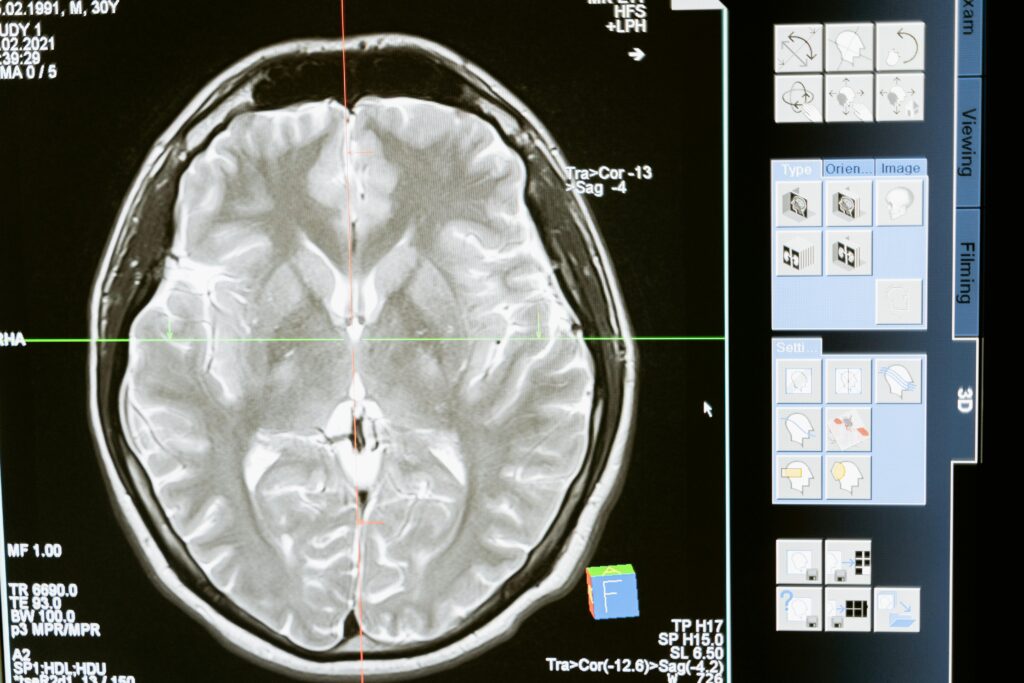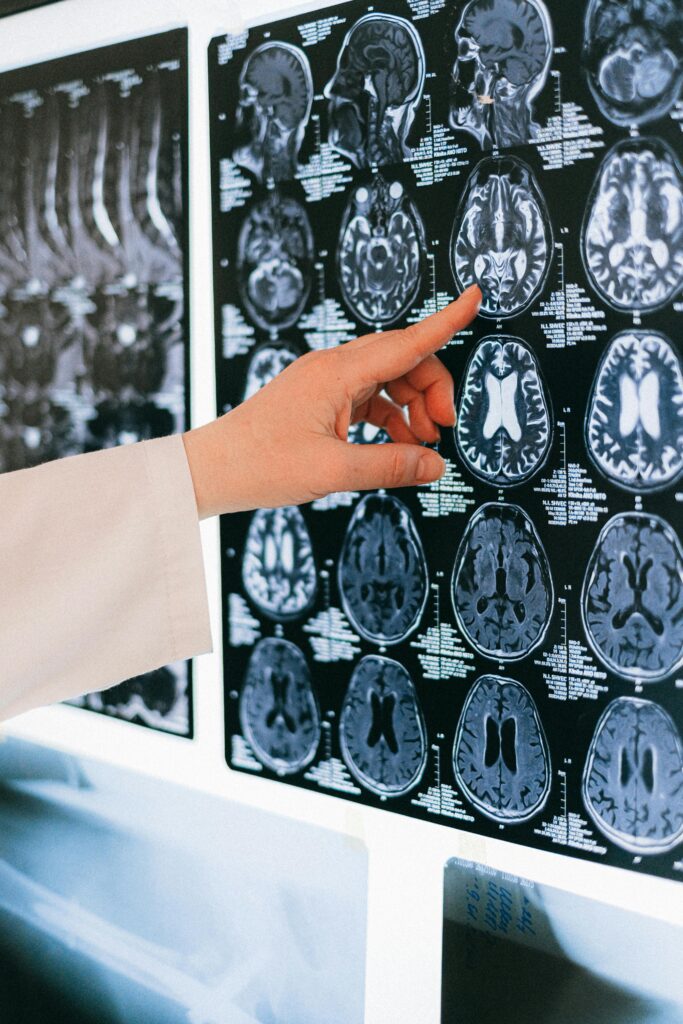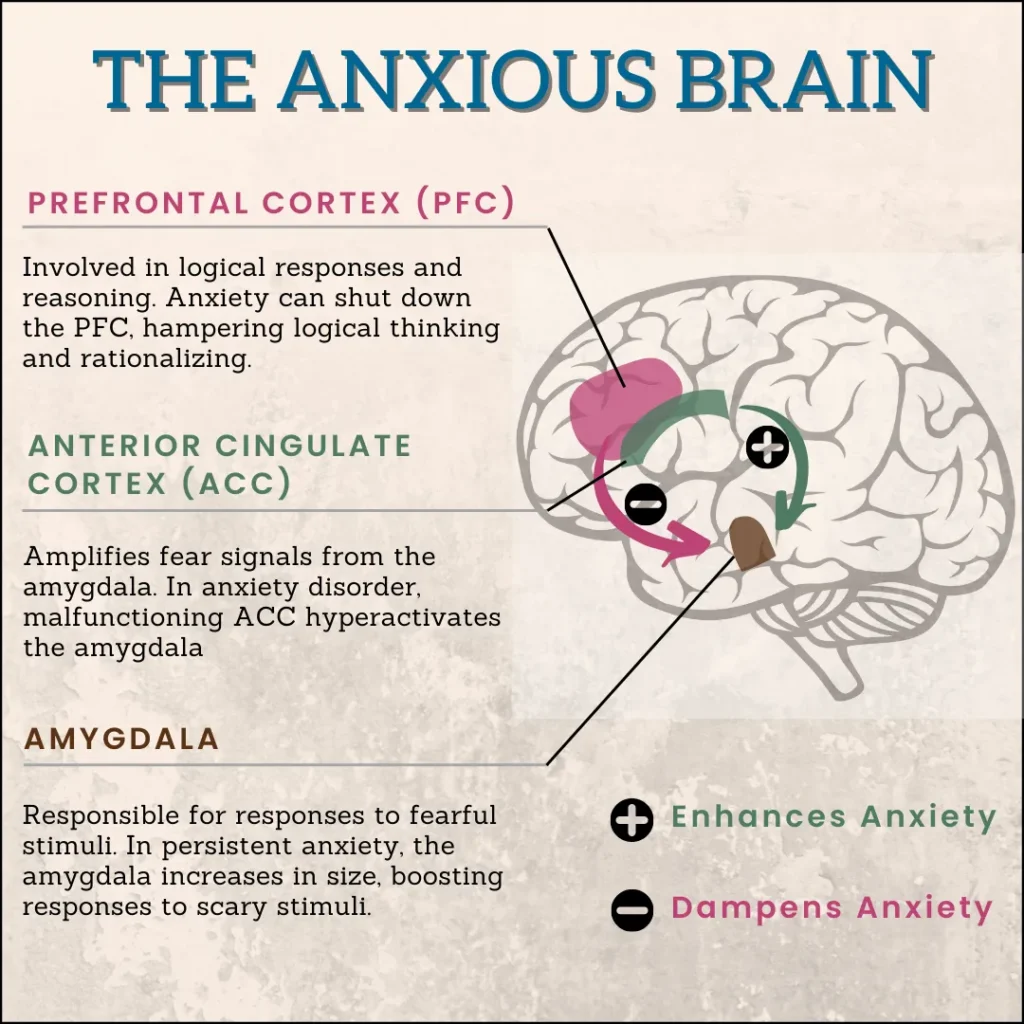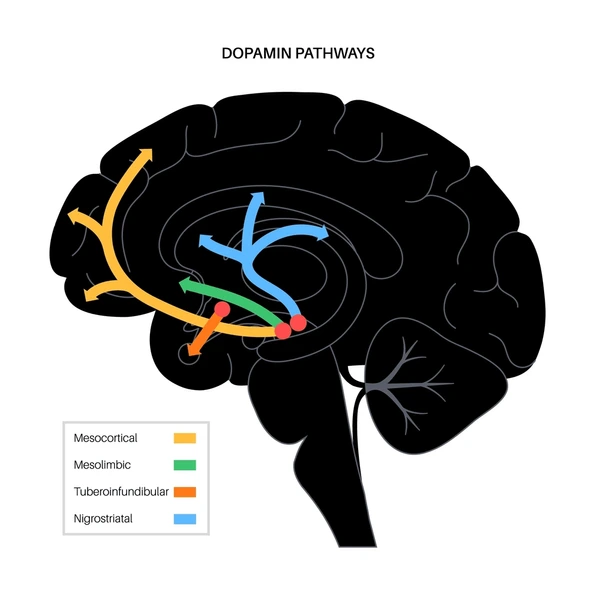Perfectionism has neurological and psychological underpinnings that can be understood through its impact on brain function and structure.
Let’s take a closer look at how the brain and its functions contribute to perfectionism:
Brain Areas Involved in Perfectionism
Prefrontal Cortex (PFC):
- Role: The PFC is involved in executive functions such as planning, decision-making, and self-regulation. It plays a key role in setting high standards and evaluating one’s performance against those standards.
- Impact on Perfectionism: Overactivity or dysregulation in the PFC can lead to obsessive thoughts about achieving perfection and excessive self-monitoring.
Research Evidence: “Studies using fMRI scans have shown increased activity in the PFC of individuals with perfectionistic traits, particularly during tasks requiring self-evaluation.” (Smith et al., 2020)

Striatum:
- Role: Part of the basal ganglia, the striatum is involved in reward processing and habit formation. It helps regulate motivation and reinforcement of behaviors.
- Impact on Perfectionism: Abnormalities in the striatum can affect how rewards are processed, potentially leading to compulsive behaviors and an intense focus on achieving perfection as a means of attaining satisfaction.
Research Evidence: “Functional imaging studies suggest that individuals with perfectionistic behaviors exhibit altered reward responses in the striatum, indicating hypersensitivity to outcomes.” (Johnson & Lee, 2018)

Anterior Cingulate Cortex (ACC):
- Role: The ACC is involved in error detection, conflict monitoring, and emotional regulation. It helps in assessing discrepancies between goals and actual performance.
- Impact on Perfectionism: Increased activity in the ACC may contribute to heightened sensitivity to mistakes and a greater focus on avoiding errors, which can drive perfectionistic tendencies.
Research Evidence: “Heightened ACC activity correlates with increased error sensitivity in individuals exhibiting perfectionistic traits.” (Garcia et al., 2019)

Amygdala:
- Role: The amygdala is involved in processing emotions, particularly fear and anxiety. It helps in responding to emotional stimuli and regulating stress responses.
- Impact on Perfectionism: Overactivity in the amygdala can increase anxiety related to performance and fear of failure, contributing to perfectionistic behaviors.
Research Evidence: “Amygdala hyperactivity is frequently observed in perfectionists, particularly during high-stress situations or performance evaluations.” (Chen & Patel, 2021)

Dopaminergic Systems:
- Role: Dopamine is involved in reward processing and motivation. It influences how rewards and achievements are perceived.
- Impact on Perfectionism: Dysregulation in dopaminergic systems can lead to an excessive pursuit of rewards and high standards, contributing to perfectionistic tendencies.
Research Evidence: “Dopaminergic imbalances are implicated in heightened reward sensitivity and compulsive goal-seeking in perfectionistic individuals.” (Williams et al., 2022)

Additional Insights
Neurotransmitters Beyond Dopamine:
- Serotonin: Low serotonin levels are often linked to obsessive-compulsive tendencies, which share traits with perfectionism. This neurotransmitter imbalance may amplify self-critical thoughts and rigid behaviors.
Research Evidence: “Serotonin dysfunction contributes to the obsessive and rigid thought patterns characteristic of perfectionism.” (Evans & Brown, 2017)
The Role of Neuroplasticity:
Repetitive perfectionistic behaviors reinforce specific neural pathways, making perfectionism a deeply ingrained habit. However, the brain’s neuroplastic nature also allows for the rewiring of these pathways through intentional behavioral and cognitive changes.
Research Evidence: “Neuroplastic changes in individuals with perfectionism can be reversed through targeted interventions such as CBT and mindfulness practices.” (Harrison et al., 2020)
Impact of Chronic Stress on Brain Function:
- Chronic stress associated with perfectionism can lead to changes in the hippocampus (memory and learning) and the PFC, exacerbating symptoms.
- Stress-induced cortisol release may impact the brain areas mentioned, perpetuating perfectionistic behaviors and emotional dysregulation.
Research Evidence: “Chronic stress leads to structural changes in the hippocampus and functional impairments in the PFC, further entrenching perfectionistic tendencies.” (Anderson et al., 2018)
Behavioral Feedback Loops:
- Perfectionistic behaviors, such as constant checking or excessive self-criticism, create feedback loops that reinforce neurological patterns, making the cycle harder to break.
Research Evidence: “Reinforced behavioral loops in perfectionists strengthen maladaptive neural pathways over time.” (Taylor & Schmidt, 2021)
Practical Implications
Understanding these mechanisms informs targeted interventions:
- Cognitive-Behavioral Therapy (CBT): Helps identify and reframe perfectionistic thoughts.
- Mindfulness-Based Stress Reduction (MBSR): Reduces activity in the amygdala and improves emotional regulation.
- Medication: Selective serotonin reuptake inhibitors (SSRIs) may address neurotransmitter imbalances.
Conclusion
Perfectionism is associated with various neurological factors, including overactivity or dysregulation in brain areas involved in reward processing, error detection, and emotional regulation. These factors contribute to obsessive focus on achieving high standards, excessive self-monitoring, and heightened sensitivity to mistakes. Chronic stress and behavioral feedback loops further exacerbate these tendencies. However, neuroplasticity offers hope for change. Understanding these neurological underpinnings can help in developing targeted interventions to manage perfectionism and its associated challenges.

